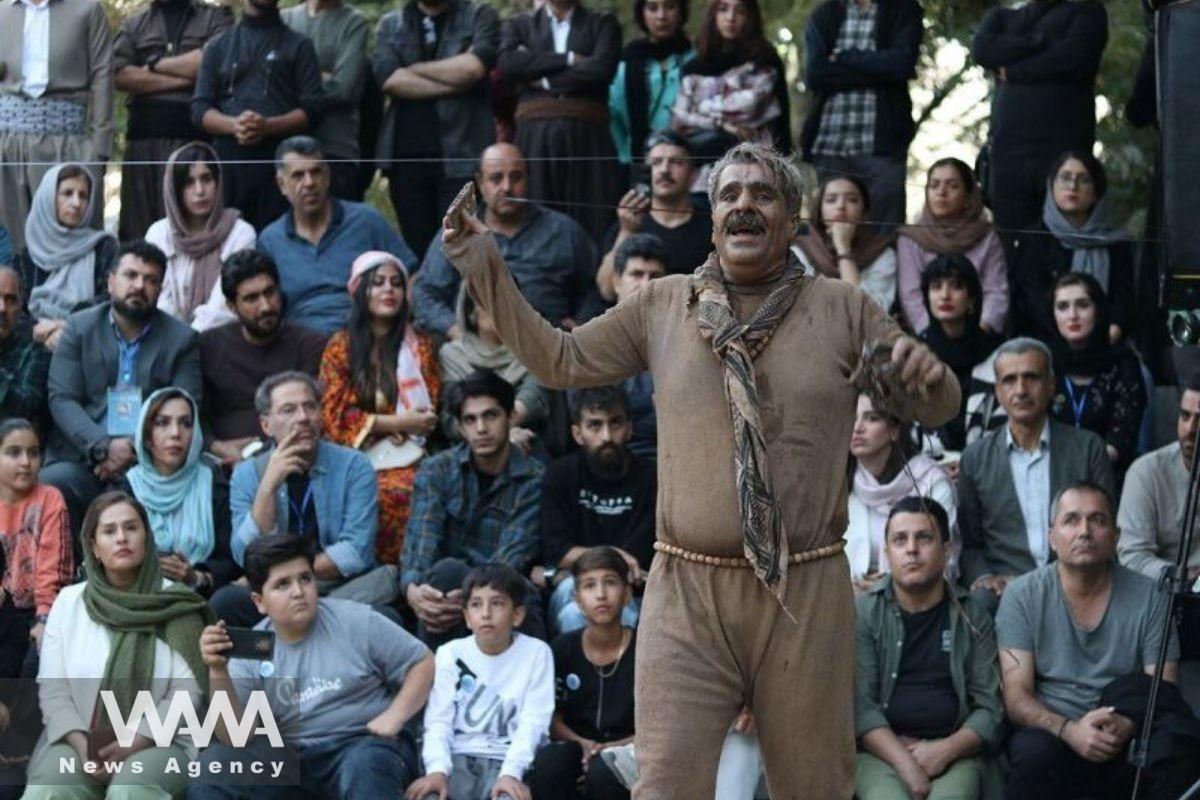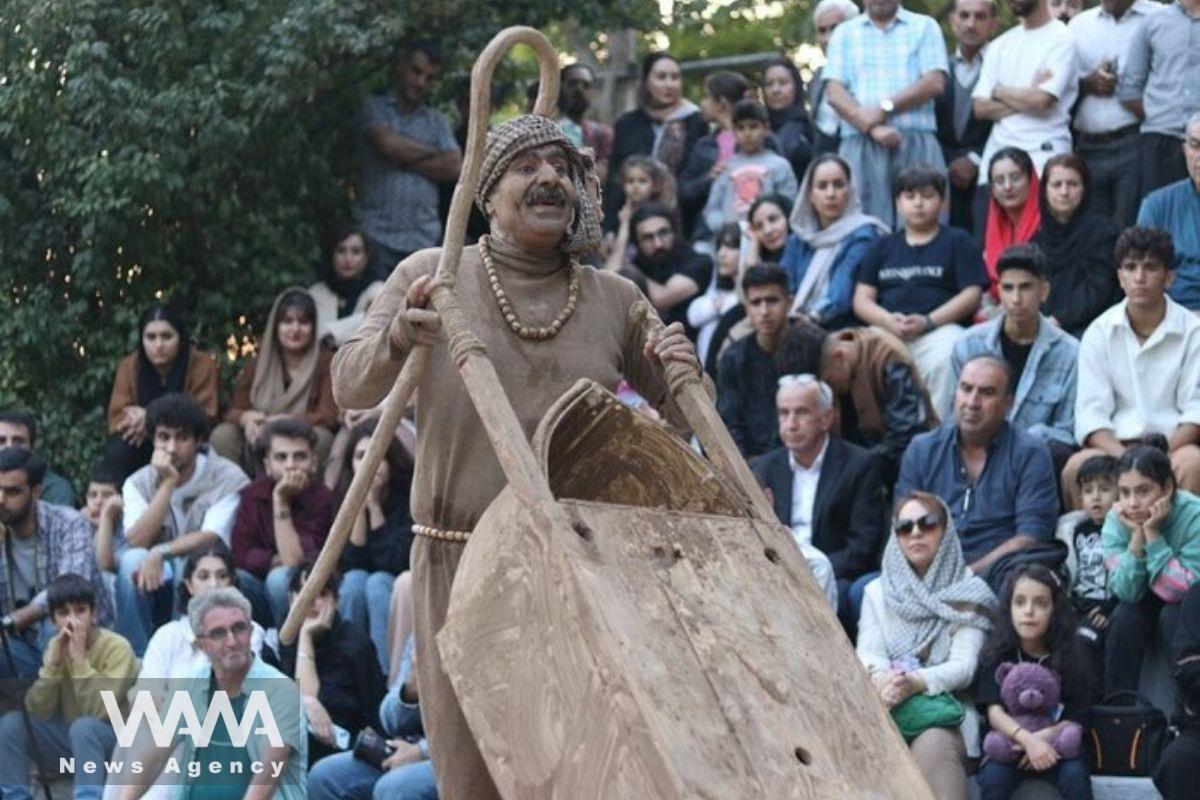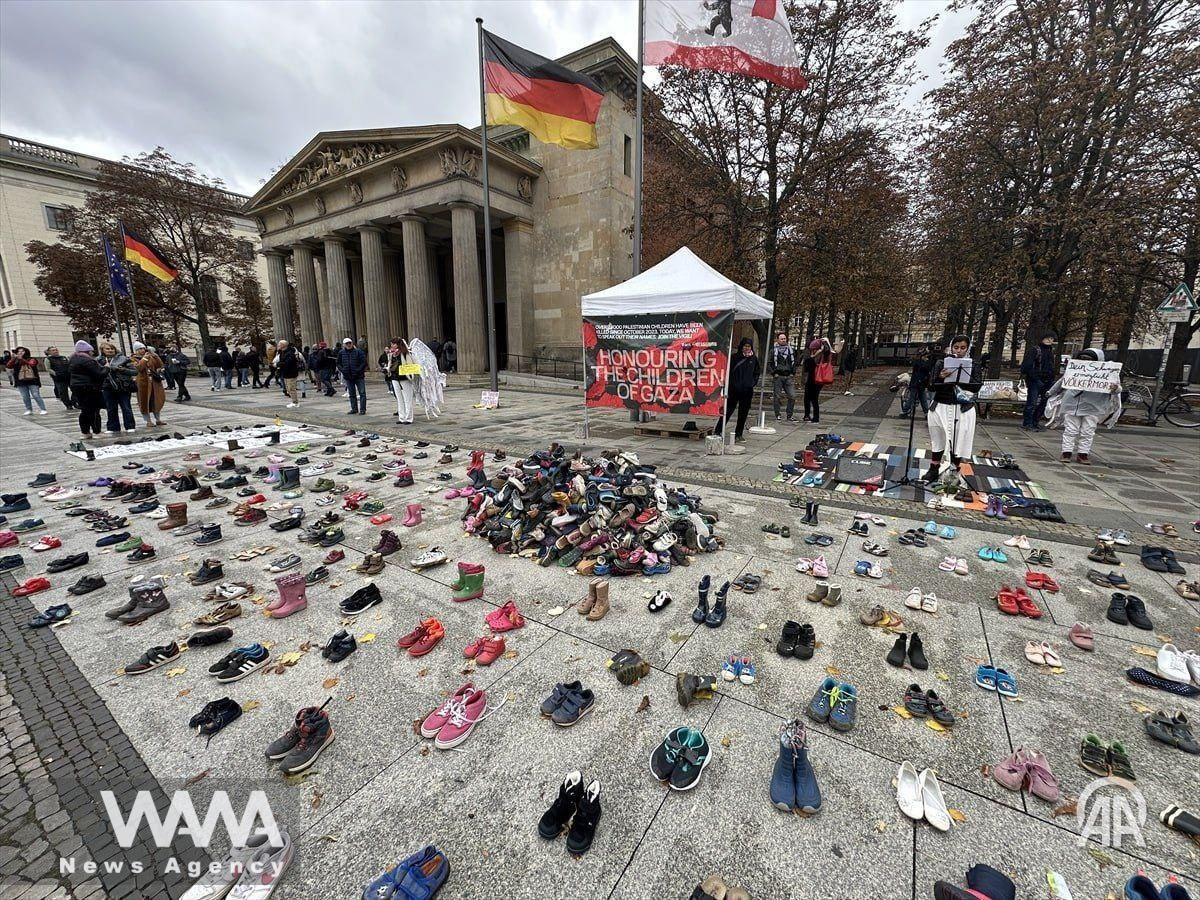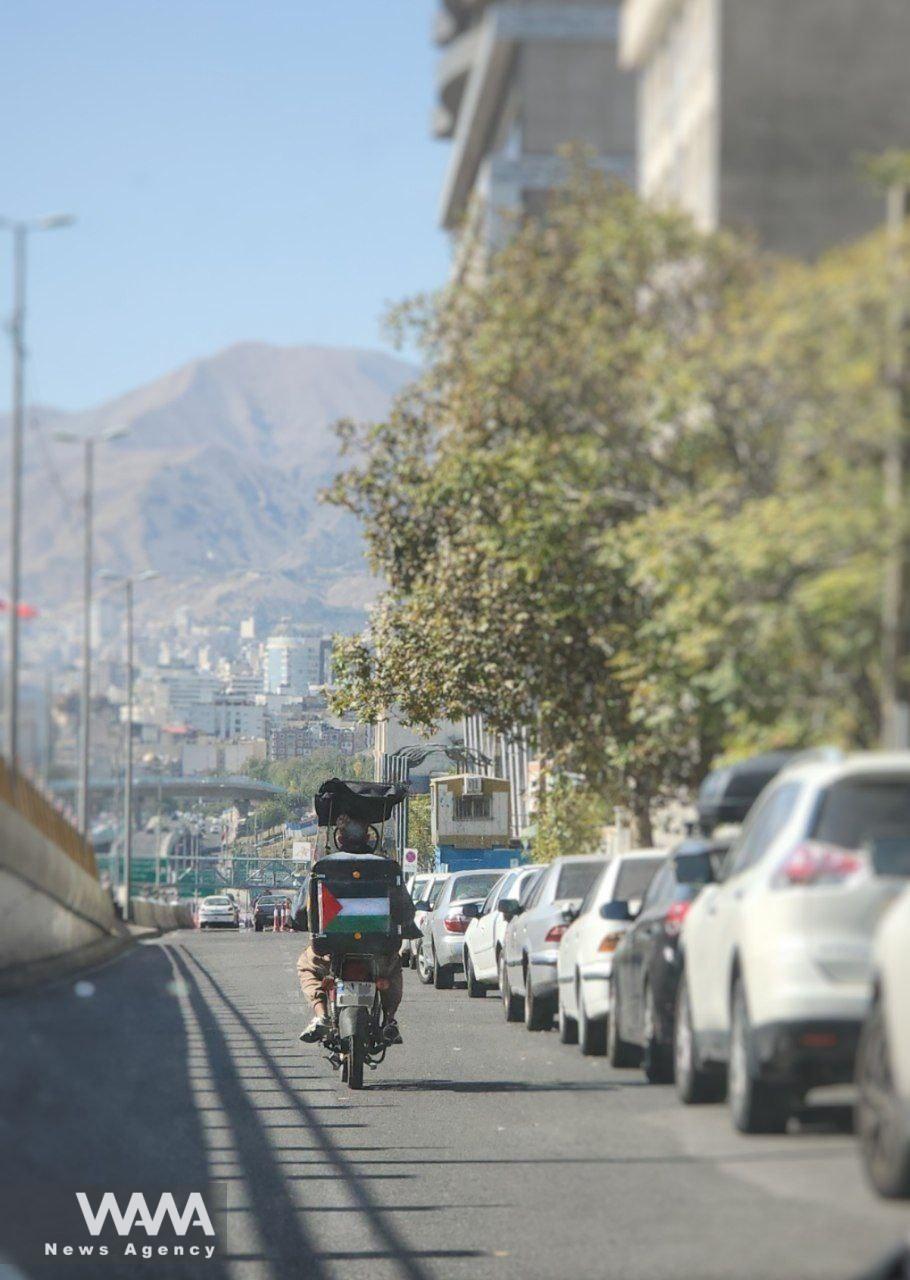The Path Without a Companion
WANA (Oct 14) – Covered in dust and mud from head to toe, he stands on a wooden cart, his gaze fixed on the distant horizon as if searching the far reaches of the sky for something lost. His dirt-covered appearance, coupled with the large wooden pieces strapped to his hands, legs, and back, gives him an unusual, almost surreal look.
He begins his story from when his heart was still full of life, from the days when Kurdish songs, “Helperke” dances, and “Gorani” tunes lifted his spirits. But in his eyes, there was a heavy sadness, a grief that even these joyous traditions could not soothe.
At first, he was silent, but then suddenly, his silence turned into a cry. He spoke of the years when he swallowed his sorrow, of the years when he lost his wife, mother, and children in the chemical bombing of Halabja. He talked about his dust-covered keffiyeh, which had now become intertwined with the blood-stained keffiyeh of the Palestinians. He had witnessed, with his own eyes, unspeakable atrocities, the kind that the world chose to ignore.

Street theatre, Rigaye Bi-Ribwar (The Path Without a Companion), Social media/ WANA News Agency
He gave away all his dearest mementoes, from his wife’s clay mirror to his mother’s necklace, and in the echo of the call to prayer, he became the herald of awakening for the Islamic world. He prayed for Palestine and Gaza, but it was as if the world had become numb to the violence. Silence was the world’s only response to his cries.
In the end, he buried both himself and his voice beneath the same wooden cart with which he had arrived at the beginning of the story.
Mukhtar Mohammadi, a playwright and director from Marivan, created a powerful play titled “Rigaye Bi-Ribwar” (The Path Without a Companion) to shed light on two major historical tragedies: the Anfal campaign and the Halabja chemical attack. His play not only reflected the pain and suffering of oppressed people in the distant past but also addressed why today’s artists must engage with such issues.

Street theatre, Rigaye Bi-Ribwar (The Path Without a Companion), Social media/ WANA News Agency
In an interview about the play, Mohammadi stated, “If the artists of that time had voiced these pains through art and made the world hear them, we might not be witnessing the repetition of such atrocities in Palestine today.” His words sounded like an alarm, a reminder that history can repeat itself repeatedly if cries for justice and awakening do not reach the world in time.
Reflecting on the current situation in Palestine and Lebanon, Mohammadi emphasized the importance of a global perspective in art. He believed that Iranian artists, as well as all those concerned with humanitarian issues, should look beyond geographical borders and draw inspiration from the pain and struggles of the people in the Middle East. He stressed that art should not be shallow or meaningless but should instead reflect the world’s harsh realities.
Mohammadi called on artists and the public to take action in these turbulent times, urging everyone to contribute, however small, to support oppressed nations. Today, thousands of people participate in protest marches and street theatre to raise awareness of the plight of the oppressed. Even the smallest symbols of support can have an impact.

Hundreds of pairs of children’s shoes lined the sidewalk of Berlin’s Unter den Linden boulevard in memory of the 17,000 children killed in Gaza by Israel’s criminal attacks, Social media/ WANA News Agency
The Iranian man who painted the Palestinian flag on his delivery box or the hundreds of pairs of children’s shoes displayed along Unter den Linden Boulevard in Berlin to honour the 17,000 children killed in Gaza by Israeli attacks can be recalled as cases of support.
Mukhtar Mohammadi, pointing to the tragedies in Yemen and Palestine, warned that if we are not vigilant and do not fulfil our responsibilities, these atrocities could one day reach our own cities.
Through his play, he urged all members of society to stand with oppressed and victimized nations, using the voice of art to wake the world from its slumber of ignorance.

The Supreme Leader of the Islamic Republic of Iran: “All Muslims must support Hezbollah with all their means.” For this man, his means were the delivery box on the back of his motorbike, Social media/ WANA News Agency
READ MORE:
On March 16, 1988, during the launch of Operation Valfajr 10 by Iranian forces in the Kurdish region of Halabja, which led to the capture of parts of Iraqi Kurdistan, the Ba’athist regime, under the direct orders of Saddam Hussein, carried out a chemical bombing against its own people in the Halabja region.
Saddam ordered his cousin and deputy, Ali Hassan al-Majid, infamously known as “Chemical Ali,” to execute the chemical attacks on these areas. According to a report later published by the United Nations, the attack involved the use of mustard gas and several unknown nerve agents.
This attack, which was part of the infamous “Anfal” campaign, resulted in the horrific deaths of around 5,000 civilians in Halabja, Iraq, within just a few minutes. Tens of thousands more were injured and left suffering from the devastating effects of the chemical weapons.












